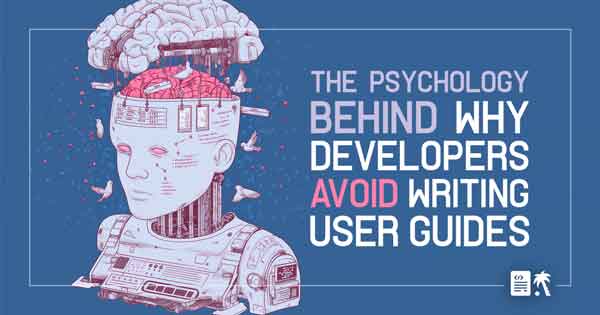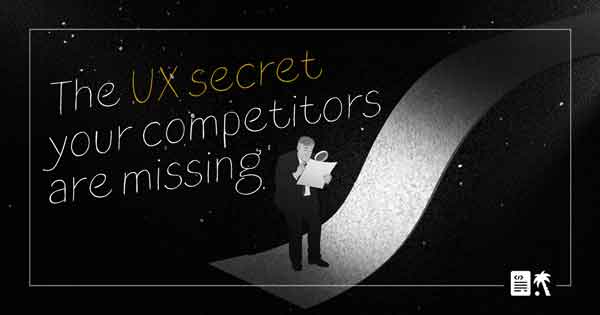When Your Documentation Has More Personality Than Your Dating Profile


Let's be honest about something that's been bothering me lately. I've been reading a lot of documentation recently (occupational hazard), and I've noticed something weird: some of these user guides have more charm, wit, and genuine personality than most people's dating profiles. While millions of humans are out there describing themselves as "fun-loving" and "looking for adventure," software companies are writing error messages that actually make you smile.
This is either a beautiful testament to how far technical writing has evolved, or a damning indictment of how boring we've all become on dating apps. Probably both.
Think about it. When was the last time a dating profile made you genuinely laugh? Now think about the last time you encountered documentation that had you chuckling while you learned how to configure your database settings. If you're like me, the documentation wins by a landslide. And that's... kind of amazing, actually.
The Great Personality Paradox
We're living through a fascinating cultural moment where companies are pouring more creativity into explaining how their software works than most people put into explaining who they are as human beings. Research from Cindy Childress, Ph.D. shows that bringing personality to writing involves avoiding passive voice, using informal language, and reading your work aloud—techniques that many documentation teams have mastered while dating app users apparently haven't.
The irony is delicious. Your average API documentation now reads like it was written by someone you'd actually want to grab coffee with, while your average dating profile reads like it was generated by a committee of corporate lawyers who've never experienced joy.
Consider this actual error message from a popular development tool: "Oops! Looks like you tried to divide by zero. We're not mathematicians, but we're pretty sure that's not supposed to work. Maybe try a different number?" Compare that to the typical dating profile: "I love to laugh and have fun. Looking for someone who shares my passion for life." Which one tells you more about the personality behind it?
When Software Gets Sassy
The best documentation today doesn't just inform—it entertains, reassures, and occasionally roasts you in the most loving way possible. It's like having a knowledgeable friend who happens to be really good at explaining complex technical concepts and isn't afraid to crack jokes while doing it.
Take MailChimp's early documentation, which became legendary for lines like "Don't worry, we won't send you spam. We hate spam as much as you do." Or Slack's error messages that manage to be both helpful and endearing: "Something's gone wrong, but don't panic. These things happen." These companies understood something that most dating app users haven't figured out: personality isn't about being quirky for the sake of it—it's about being genuinely human in your communication.
The Sprout Social brand voice guide emphasizes that effective brand personality comes from being "clear, concise and human, like a friendly, intelligent coworker." This is exactly what great documentation achieves, and it's exactly what most dating profiles fail to do. Instead of sounding like friendly, intelligent humans, most dating profiles sound like they were written by someone who learned about human emotions from a Wikipedia article.
The Documentation Dating Profile Test
Here's a fun experiment: take your favorite piece of documentation and imagine it as a dating profile. Now take an actual dating profile and imagine it as documentation. Which one would you rather spend time with?
Great documentation tells you exactly what to expect, walks you through complex processes step by step, acknowledges when things might be confusing, and maintains a consistent voice throughout. It's reliable, helpful, and often surprisingly delightful. It doesn't promise you'll have the "time of your life" without explaining what that actually means.
Meanwhile, most dating profiles are the equivalent of documentation that just says "This software does stuff. It's really good stuff. You'll love it. No further explanation provided." Not exactly compelling, is it?
The Art of Useful Personality
What makes documentation personality work is that it serves a purpose beyond just being memorable. The humor, warmth, and human touch all make the information more digestible, more trustworthy, and more likely to be retained. When Stripe's documentation says "Don't worry, we'll walk you through this step by step," it's not just being nice—it's reducing user anxiety and increasing the likelihood of successful implementation.
This is where dating profiles could learn something. Personality in documentation works because it makes the functional content more accessible. The jokes aren't random—they're strategically placed to ease frustration or celebrate small wins. The casual language isn't sloppy—it's carefully chosen to make complex concepts feel approachable.
Compare this to dating profiles that throw around personality traits like confetti without connecting them to anything meaningful. "I'm spontaneous!" Okay, but what does that mean for someone considering dating you? "I love adventure!" Cool, but what kind of adventures, and how does that translate to a relationship?
Great documentation shows rather than tells. Instead of saying "our software is user-friendly," it demonstrates user-friendliness through clear explanations, helpful examples, and encouraging language. Instead of claiming to be "innovative," it shows innovation through creative problem-solving and thoughtful user experience design.
The Emotional Intelligence of Error Messages
One of the most impressive developments in modern documentation is the emotional intelligence of error messages. Instead of the old-school approach of basically yelling "ERROR 404: YOU BROKE SOMETHING," today's best error messages acknowledge the user's likely emotional state and respond accordingly.
"We can't find that page, but don't worry—it happens to the best of us. Here are some other places you might want to check out." This message recognizes that encountering an error is frustrating and responds with reassurance rather than blame. It's like having a friend who says "no big deal, let's figure this out together" instead of "wow, you really messed that up."
Dating profiles could use this kind of emotional intelligence. Instead of listing demands ("must love dogs, must be over 6 feet tall, must have a sense of humor"), what if they acknowledged the vulnerability of putting yourself out there? "I know online dating can be weird, but I'm hoping to find someone who enjoys long conversations about everything and nothing, preferably over really good coffee."
The Consistency Factor
One thing that makes documentation personality work is consistency. The voice remains recognizable whether you're reading the getting-started guide, troubleshooting a complex issue, or exploring advanced features. This consistency builds trust and creates a sense of relationship with the brand.
Dating profiles, on the other hand, often feel like they were written by multiple people with completely different personalities. The photos suggest someone who's always at glamorous parties, the bio talks about loving quiet nights at home, and the conversation starters ask about extreme sports. It's like documentation that's cheerful and encouraging in the setup guide but suddenly becomes cold and technical in the troubleshooting section.
The best documentation maintains its personality even when delivering bad news or explaining difficult concepts. It finds ways to be helpful and human regardless of the context. This is a skill that would serve dating app users well—maintaining authenticity whether you're talking about your hobbies, your career goals, or what you're looking for in a relationship.
The Business Case for Personality
Companies invest in documentation personality because it works. Users are more likely to successfully implement software when the documentation feels approachable and supportive. They're more likely to recommend products when the experience of learning to use them is pleasant. They're more likely to become long-term customers when they feel like the company actually cares about their success.
The same principles apply to dating. People are more likely to want to meet you when your profile feels genuine and engaging. They're more likely to recommend you to their friends (yes, this happens) when getting to know you is a positive experience. They're more likely to want a long-term relationship when they feel like you actually care about their experience of getting to know you.
The AI Documentation Advantage
Modern AI tools like Doc Holiday are making it easier for companies to maintain consistent, personality-rich documentation at scale. Instead of treating personality as a luxury that only the most well-resourced companies can afford, AI enables any organization to create documentation that feels human, helpful, and engaging.
This creates an interesting parallel to dating apps, where AI is increasingly being used to help people write better profiles and messages. The difference is that in documentation, AI is being used to enhance human personality and make it more accessible, while in dating, it's often being used to generate generic personality where none existed before.
The companies that understand this distinction are creating documentation that feels more human than ever, while dating app users who rely too heavily on AI assistance often end up sounding more robotic than the software they're trying to describe themselves to.
Learning from the Documentation Masters
What can we learn from the companies that have mastered documentation personality? First, that personality without purpose is just noise. Every joke, every casual phrase, every moment of warmth should serve the larger goal of helping users succeed.
Second, that consistency matters more than cleverness. It's better to be reliably helpful and mildly charming than to be occasionally brilliant and frequently confusing.
Third, that personality is about making the experience better for the other person, not about showcasing how creative or funny you are. The best documentation personality feels effortless because it's focused on the user's needs rather than the writer's ego.
Fourth, that showing is more powerful than telling. Instead of claiming to be user-friendly, demonstrate user-friendliness. Instead of saying you're helpful, be helpful.
The Future of Human Communication
Maybe the reason documentation has gotten so much more personable is that companies have finally figured out what users actually want: to feel understood, supported, and occasionally delighted in their interactions with technology. They want to feel like there's a real human on the other side who cares about their success and isn't judging them for not knowing something.
These are exactly the same things people want from dating and relationships, but somehow we've forgotten how to communicate them effectively in personal contexts. We've become so focused on presenting our best selves that we've forgotten to present our real selves.
The best documentation succeeds because it's genuinely helpful while being authentically human. It doesn't try to be something it's not, but it also doesn't hide its personality behind corporate speak or technical jargon. It finds the sweet spot between professional and personal, informative and engaging.
The Documentation Dating Revolution
Imagine if dating profiles were written with the same care and intentionality as great documentation. Instead of vague promises about being "fun," they'd give specific examples of what fun looks like to them. Instead of listing requirements, they'd explain what they're hoping to build with someone. Instead of trying to appeal to everyone, they'd be clear about who they're actually compatible with.
"I'm the kind of person who gets genuinely excited about finding a new coffee shop, will spend an entire evening helping you troubleshoot your WiFi problems, and believes that the best conversations happen during long walks when you're not trying to have deep conversations. If you're looking for someone who thinks grocery shopping can be an adventure and that the best relationships are built on a foundation of mutual weirdness and genuine kindness, we should probably meet."
That's documentation-quality personality: specific, helpful, honest, and human.
The Takeaway
The fact that software documentation has more personality than most dating profiles isn't just a funny observation—it's a lesson in effective communication. The companies creating the most engaging documentation have figured out how to be genuinely helpful while being authentically human. They've learned that personality isn't about being the most clever or the most entertaining—it's about making the other person's experience better.
Whether you're writing documentation or a dating profile, the principles are the same: be clear about what you're offering, be honest about what to expect, maintain a consistent voice, and always remember that there's a real human on the other side who deserves to be treated with respect, kindness, and maybe just a little bit of delight.
Your documentation shouldn't have more personality than you do. But if it does, maybe it's time to take some notes from the technical writers who've figured out how to be both professional and human, helpful and engaging, reliable and surprising.
After all, if a database configuration guide can make someone smile, imagine what you could do with a dating profile that actually reflects who you are as a person. The bar is apparently pretty low, and the documentation teams have shown us exactly how to clear it.




